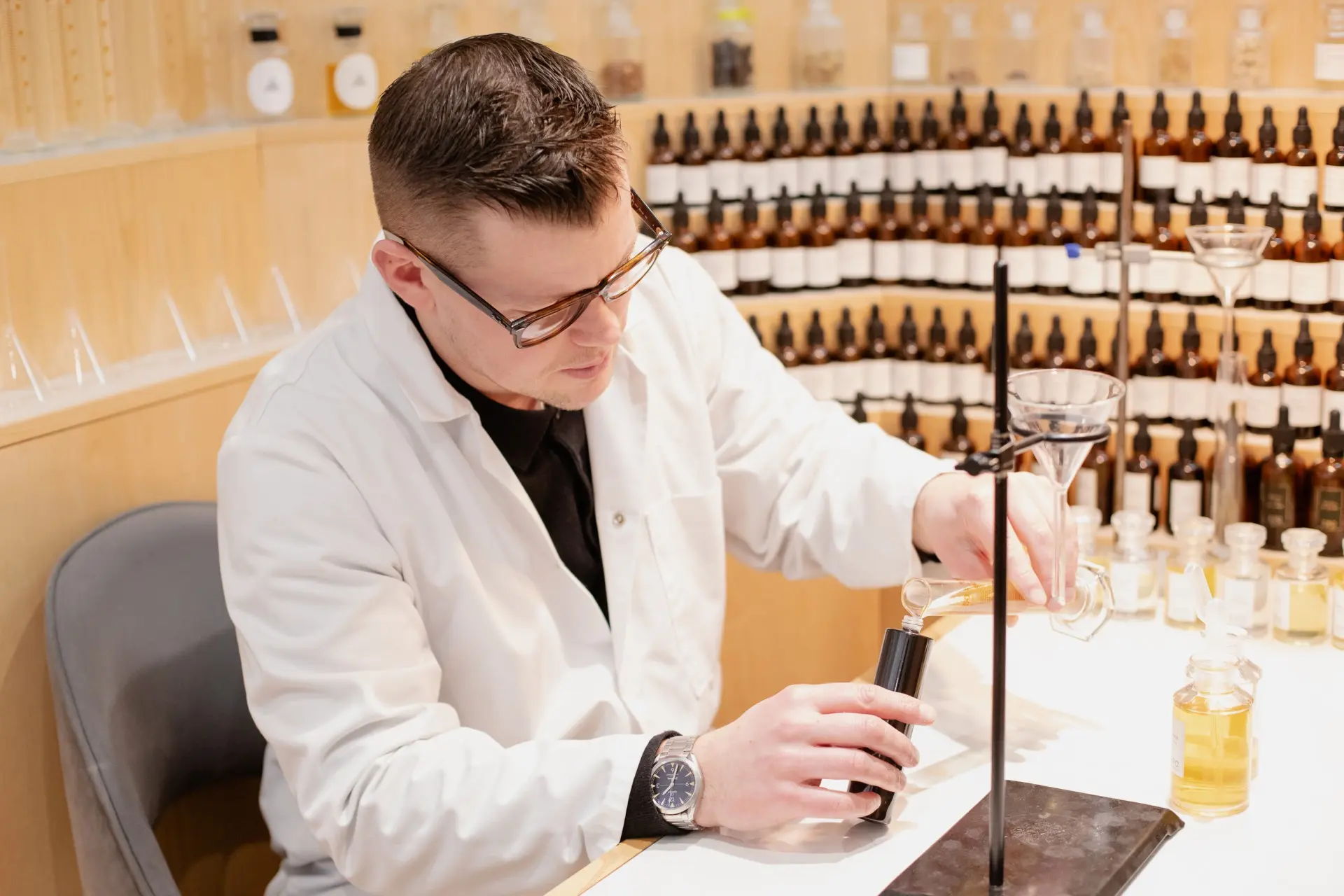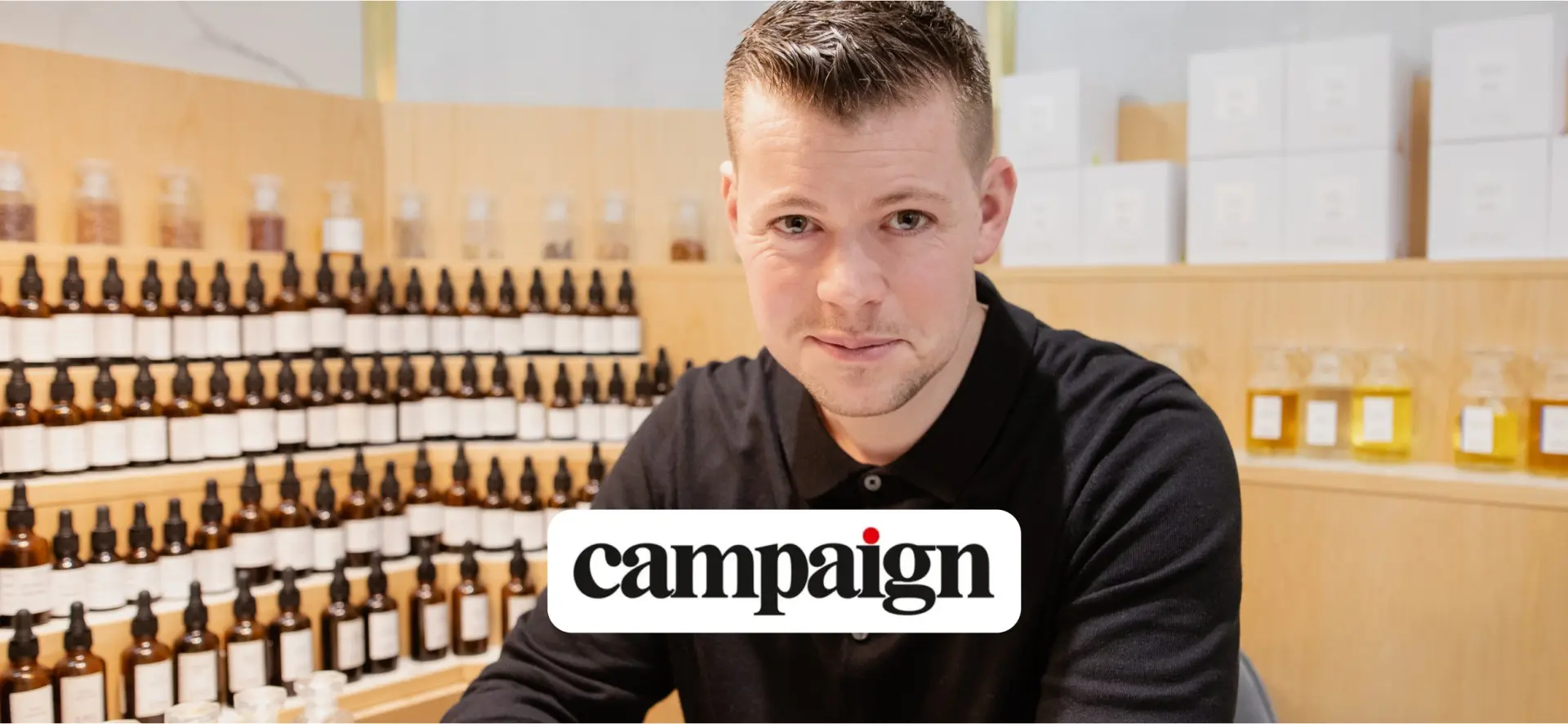Find out more about Scent by DLMDD by visiting thescentagency.com
This article by DLMDD Co-Founder Max De Lucia first appeared in Campaign Magazine, March 2025.
Every marketer’s mission is to build brands so good they’re unforgettable.
To be unforgettable, you have to tap into the strongest human senses.
It’s for this reason that sound branding has had such a prolific rise over the past decade. More than half of the world’s leading brands have now joined the race to find their own Netflix "Tu-dum", intending to capture the enviable fame that a ubiquitous sound identity can bring.
But it’s notes of a different kind that are set to be the next big superpower in multisensory branding.

Scent is our most primal sense. It is instinctive, emotional, immediate and wired directly to the brain’s limbic system, the region responsible for memory and emotion. Unlike sight or sound, which require cognitive processing, scent bypasses logic and reasoning, triggering an emotional response before we even register what we’re smelling.
A single whiff of childhood suncream can transport you back to summers spent by the sea, the salt in your hair and the warmth of sun on your skin.
All of this happens because scent and memory are so deeply intertwined. We can recall scent with 65% accuracy after a year, compared with visual memories, which fade to about 50% in just a few months.
Scent marketing is nothing new. Anyone who has walked past an Abercrombie & Fitch, stepped into a Shangri-La, or basked in the "new car smell" knows how scent can instantly transport you. Yet despite its undeniable influence, scent remains the most underused superpower in the branding playbook – a missing piece of the puzzle to transform how brands connect with audiences on a deeply instinctive and personal level.
However, sensory success isn’t simply about pumping out a signature fragrance into the world. Strike gold with scent and the world will come to you. People travel far and wide to get their hands on the scents of the La Mamounia in Marrakesh and the Hotel Costes in Paris (they are, of course, also treated to thoroughly luxurious stays while they’re at it). These fragrances symbolise what makes scent unique – they lock themselves away in our emotional memories and can transform a space whenever they’re activated. Diffuse some of the La Mamounia scent back home in your living room and a little bit of you escapes back to Marrakesh once more. That’s brand power on tap.
Whilst these fragrances are some of the most distinguished in the hotel industry, they exemplify how masterfully hospitality has harnessed scent branding. But hoteliers need not be alone in capturing this power. Any brand with people, physical space and a desire to create memorable experiences can use scent as a strategic tool to turn otherwise ordinary environments into unforgettable sensory experiences.
An aeroplane is simply a box in the sky until you fill it with sensory elements. The same is true for cars (albeit on the ground), retail, offices, gyms and even banks; any space is just a structure until it’s thoughtfully designed to engage the senses, create emotion and leave a lasting impression.
Scent branding is set to follow the meteoric rise of its sensory twin, sonic branding. Once a nice-to-have, cherry on the cake, it has fast become an indispensable brand asset; its power proven in marketing science and human psychology. As marketers race to harness scent as the most underused sensory superpower, the brands that achieve unforgettable status will be the ones that don’t let it evaporate into thin air.
